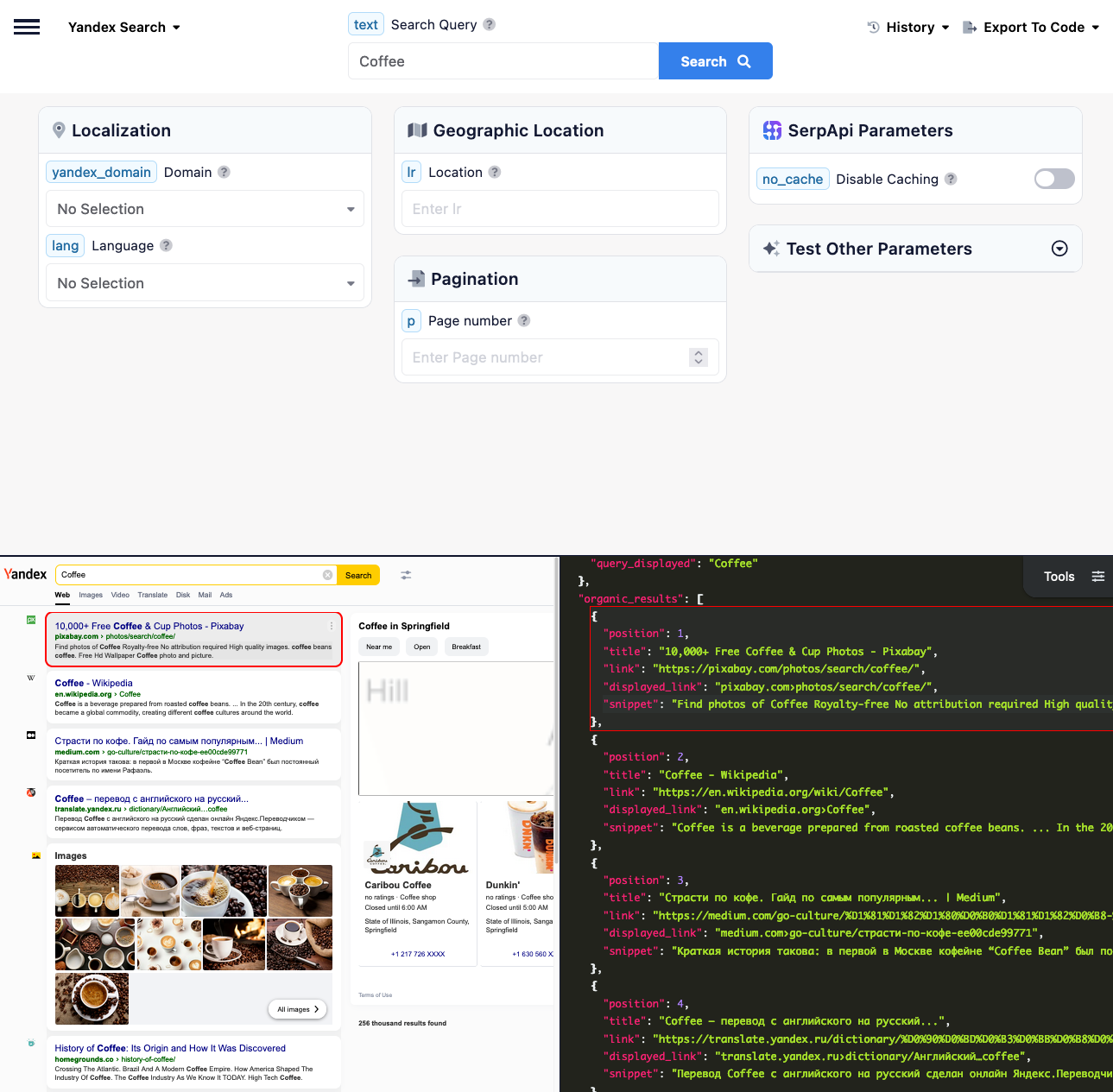Yandex is among the most popular search engines like Google, Bing, Yahoo, Baidu, DuckDuckGo, etc. Scraping Yandex search results help us to identify the trending topics, boost your online visibility, SEO or get valuable insights of keyword performance, image search, competitor analysis, and market trends.
Scraping massive amounts of real-time data from search engines - web scraping is never easy. From a technical perspective, you have to maintain, rotate user agents, proxies, captcha, parse HTML to JSON. Besides that, you have to adhere to ethical practices and respect Yandex's terms of service. Make sure you respect website policies, prioritize user privacy, and handle scraped data responsibly.
Luckily with SerpApi, you just need to focus on your business, we take care of all of these. SerpApi provides high-quality APIs and protects you with Legal US Shield (for Production plans or higher.)
Setting up a SerpApi account
SerpApi offers a free plan for newly created accounts. Head to the sign-up page to register an account and do your first search with our interactive playground. When you want to do more searches with us, please visit the pricing page.

Once you are familiar with all results, you can utilize SERP APIs using your API Key.
Scrape your first Yandex Search Results with SerpApi
Head to the Yandex search results from the documentation on SerpApi for details.
In this tutorial, we will scrape the Yandex search results - organic results containing: position, title, link, displayed_link, snippet…

We will be using Ruby in this example, and the process is similar to other languages like Python, Node, Java, Javascript, etc.
First, you need to install the SerpApi client in your Gemfile.
gem 'google_search_results'Then install the gem.
bundle installSet up the SerpApi credentials and search.
YandexSearch.api_key = "YOUR_API_KEY"
search = YandexSearch.new(text: "search query")
puts search.get_hashTo retrieve the Yandex organic results for a given search query, you can use the following code:
results = search.get_hash[:organic_results]You can store Yandex organic results in databases or export them to a CSV file.
require 'csv'
CSV.open("organic_results.csv", "w") do |csv|
csv << ["position", "title", "link", "displayed_link", "snippet"]
results.each do |organic_result|
csv << [organic_result[:position], organic_result[:title], organic_result[:link], organic_result[:displayed_link], organic_result[:snippet]]
end
endIf you have any questions, please feel free to contact me.
